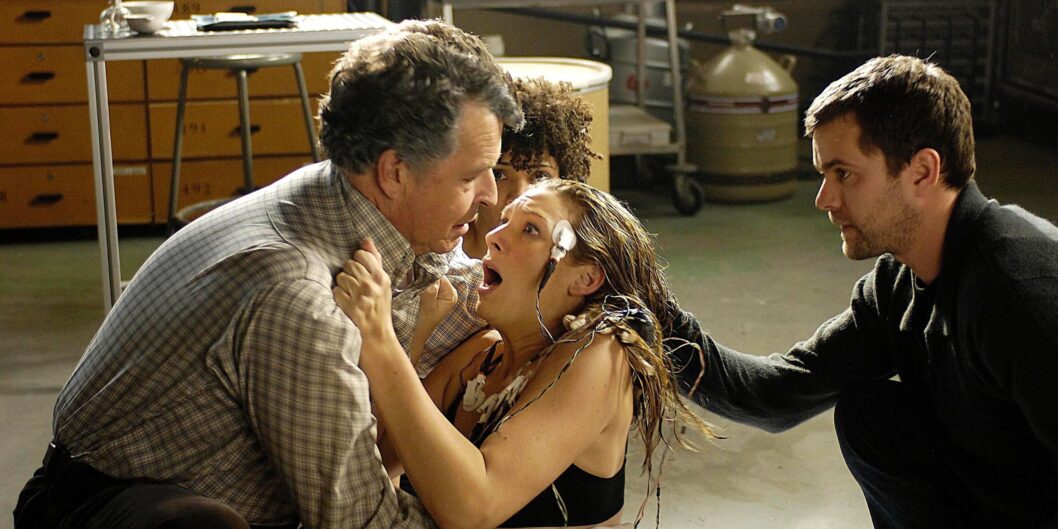Overcoming Mediocre Starts: Sci-Fi TV Shows That Found Their Groove
Not every sci-fi TV show kicks off with the explosive impact it hopes for. While some series captivate audiences with thrilling pilots and imaginative world-building, others struggle at the starting line. A significant number of well-loved sci-fi classics exhibited shaky debuts that might have felt clunky or uninspired, yet evolved into genre-defining masterpieces. This article highlights notable examples of these shows, showcasing how they overcame lackluster beginnings to secure their status as fan favorites.
Battlestar Galactica (2004-2009)
When Battlestar Galactica returned in 2004, its two-part miniseries pilot was ambitious but weighed down by excessive characters and convoluted storytelling. Critics noted that it seemed chaotic compared to the tightly written narrative that would follow. Despite a rocky start, the series transformed into one of the most revered sci-fi dramas of all time, with Edward James Olmos and Mary McDonnell delivering exceptional performances. Once the pilot’s clutter was addressed, the series flourished, tackling complex themes of identity, loyalty, and faith—a journey from a flawed debut to a poignant narrative that resonates today.
The Expanse (2015-2022)
The Expanse made headlines for its slow start, particularly with its first episode, "The Dulcinea," which many viewers found lacking urgency. However, as the series progressed, it bloomed into a richly detailed universe. Characters like James Holden (played by Steven Strait) and Naomi Nagata (played by Dominique Tipper) became essential to a compelling narrative interwoven with politics and adventure. By its second season, the series was celebrated for its breathtaking visual storytelling and intricate themes, solidifying its place among the best modern sci-fi shows.
Doctor Who (2005-Present)
The revival of Doctor Who in 2005 faced challenges with its pilot episode, "Rose." Despite the charm of Christopher Eccleston as the Ninth Doctor and Billie Piper as Rose Tyler, the episode suffered from campy dialogue and rushed pacing. Fortunately, the series quickly gained momentum, reestablishing itself as a cultural phenomenon with improved narrative quality and visual effects. It became a hallmark of modern British science fiction, continuing to evolve and adapt over the years.
Babylon 5 (1993-1998)
The TV movie "The Gathering," which served as the pilot for Babylon 5, received mixed reviews due to its pacing and subpar effects. Despite initial skepticism, creator J. Michael Straczynski crafted a compelling narrative once the series launched, unfolding a five-year story arc that explored socio-political complexities and moral dilemmas. Today, Babylon 5 is lauded for its innovation in serialized storytelling, cementing its legacy in the sci-fi genre.
Star Trek: Discovery (2017-2024)
Star Trek: Discovery initially divided fans with its grim and complex pilot that introduced Captain Georgiou (played by Michelle Yeoh) and Michael Burnham (played by Sonequa Martin-Green) as a mutineer. While the pilot sparked controversy regarding its departure from the optimistic tone of previous Star Trek iterations, subsequent episodes revealed a narrative of redemption and growth, aligning more closely with the essence of the franchise. Over its seasons, Discovery crafted a modern take on Star Trek, blending emotional storytelling with high production values.
Black Mirror (2011-Present)
The pilot episode of Black Mirror, titled "The National Anthem," polarized viewers with its shocking premise. Critics felt it lacked the technological focus of what the show would later become. However, as the anthology series developed, it found its distinctive voice in delving into humanity’s relationship with technology. Subsequent episodes like "Fifteen Million Merits" solidified its reputation as a groundbreaking cultural phenomenon, tackling moral quandaries in a technologically advanced society.
Stargate SG-1 (1997-2007)
Stargate SG-1 launched with its pilot episode "Children of the Gods," which struggled against poor pacing and a campy presentation that didn’t resonate. Nonetheless, as actors Richard Dean Anderson and Michael Shanks grew into their roles, the series transcended its cliched beginnings. Combining mythology, science, and humor, SG-1 became one of television’s longest-running sci-fi franchises.
Fringe (2008-2013)
The initial two-hour pilot of Fringe landed flat with many viewers, who found the characters and scenarios unengaging. Yet, as the show leaned into its eccentricities, it developed a devoted fan base, showcasing the chemistry between Joshua Jackson, Anna Torv, and John Noble. By its second season, Fringe was delivering unparalleled, emotionally charged narratives, ultimately securing its reputation as one of the most inventive shows of its time.
Conclusion
The path from a shaky start to acclaim highlights the resilience and potential of sci-fi television. These series demonstrate that initial missteps do not dictate a show’s longevity or impact. Instead, they serve as reminders that complex storytelling often requires time to evolve and that what may begin as somewhat underwhelming can blossom into cultural milestones in the sci-fi genre. The narratives of these beloved shows encourage viewers to remain open-minded, offering a powerful lesson in perseverance—both in storytelling and in the journey of artistic creation.









